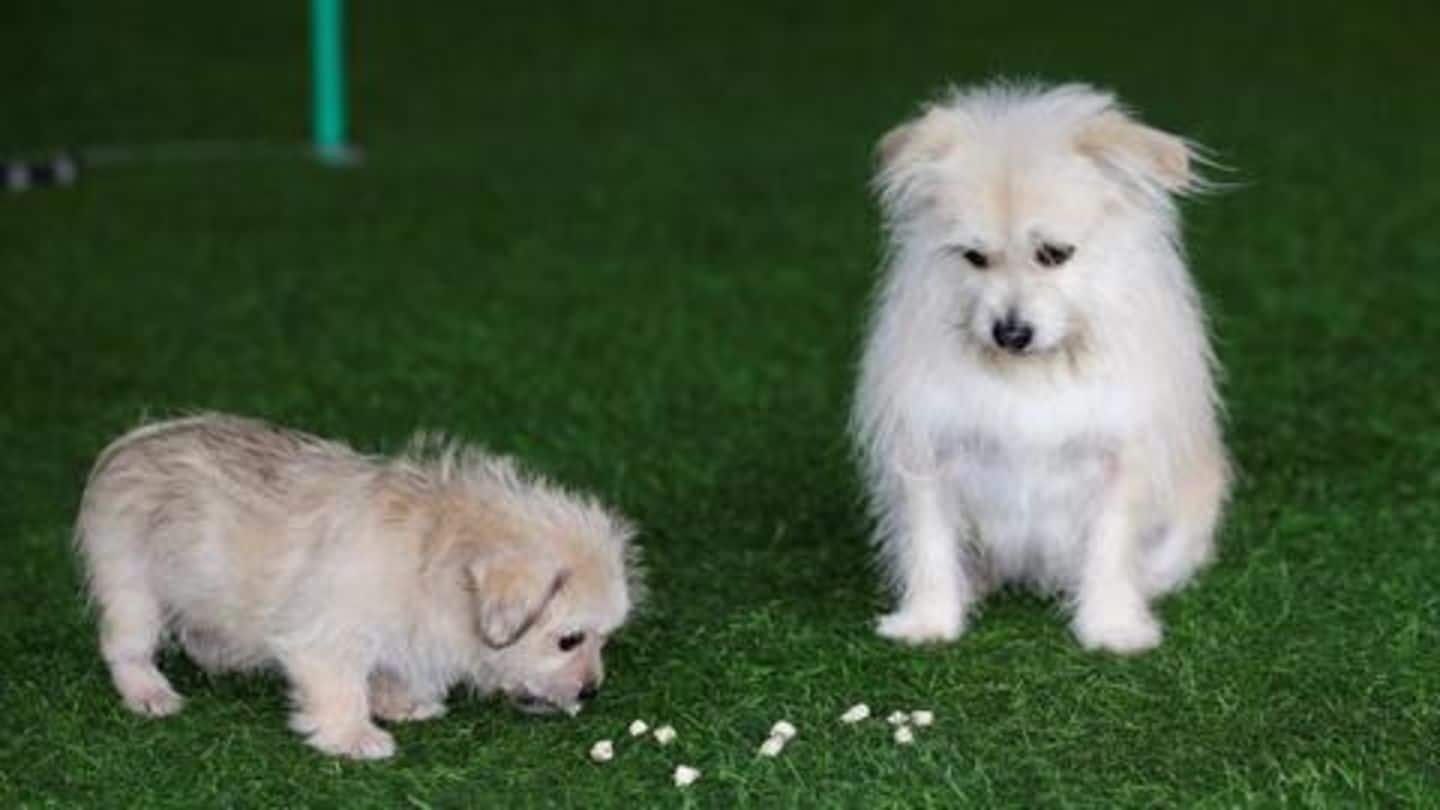
This Chinese company can clone your dog for Rs. 38L
What's the story
In what will come as a good news for pet owners, there's a biotech firm in China which clones dogs. Beijing-based Sinogene has been cloning dogs since 2017 and you can get your dog cloned for Rs. 38.5L. Sinogene recently made headlines after it cloned a celebrity dog, a mongrel named Juice, who earns in six figures by featuring in Chinese movies.
Details
Juice cannot reproduce as he was neutered
Juice, the furry creature, is 9-years-old and is known to be having a hard time recently due to growing age. His trainer and owner, He Jun, told media that Juice cannot reproduce as he was adopted as a stray and neutered on arrival. Therefore, to carry forward the celebrity dog's legacy in show business, his clone was produced, who is known as 'Little Juice'.
Process
Genetic samples from Juice's lower abdomen were taken for cloning
Sinogene was hired to clone Juice and it acquired genetic samples from his lower abdomen and fertilized an egg with the DNA. The fertilized egg was carried by a beagle and was born in mid-September. Jun said Juice is an intellectual property having a social influence. While Little Juice has not yet begun her celebrity career, Jun believes he'll do better than Juice.
Cloning
Sinogene's first-cloned dog was from a gene-edited donor
Sinogene first made headlines in media with its first cloned-dog, Longlong, a beagle, in May 2017. Interestingly, Longlong was produced for the scientific study of a disease. He was cloned from Apple, a different dog, whose genome was edited to develop the disease atherosclerosis. Atherosclerosis is a leading cause of stroke and heartsickness. Therefore, Longlong became the world's first cloned-dog from a gene-edited donor.
Information
China has regulations for animal-use for research but not cloning
Sinogene's CEO Mi Jidong said, "We've discovered that more and more pet owners want their pets to accompany them for an even longer period of time." While China has regulations on the use of animals for lab-research, there are no laws explicitly covering animal cloning.
Monkey clones
World's first monkey clones were produced by Chinese-lab in January
In January, Shanghai-based Chinese Academy of Sciences Institute of Neuroscience produced the world's first monkey clones, two long-tail macaques. They were born using the same technique that gave us Dolly the sheep, world's first cloned animal. The Dolly method is known as the somatic cell nuclear transfer, a laboratory strategy for creating a viable embryo from a body cell and an egg cell.